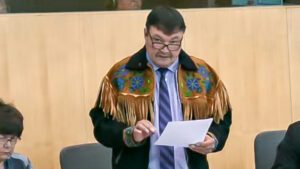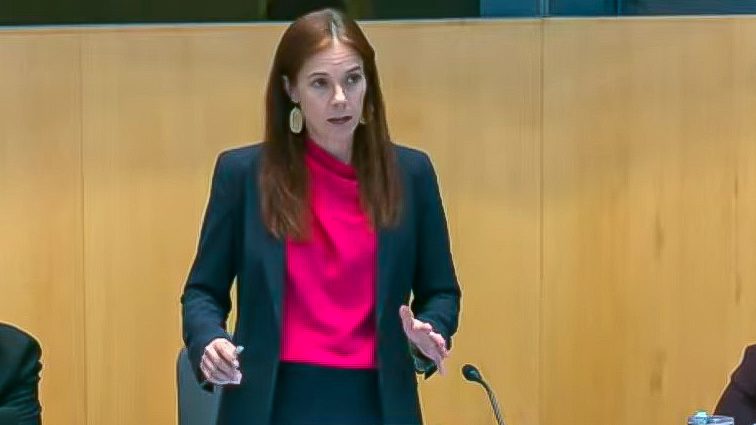The Members of the Legislative Assembly were back in session Thursday after their summer break.
And the “humanitarian crisis” in the Sahtu region, especially with cost-of-living and fuel shortages in Norman Wells, MLAs entered into and emergency debate following a motion by Range Lake MLA Kieron Testart.
 At the time of this posting last evening, the debate was ongoing, with Deputy Premier and Minister of Infrastructure Caroline Wawzonek saying that everyone, including cabinet, supports Norman Wells, and that it is “a crisis, it’s a hub community … this is going to affect the entire Sahtu.”
At the time of this posting last evening, the debate was ongoing, with Deputy Premier and Minister of Infrastructure Caroline Wawzonek saying that everyone, including cabinet, supports Norman Wells, and that it is “a crisis, it’s a hub community … this is going to affect the entire Sahtu.”
She continued: “We want to find a solution so that residents can stay in their homes, stay in their homes comfortably through the winter … until we get the winter roads in for the re-supply.
“This is a crisis that is effecting the whole of the Northwest Territories as it is having a huge financial impact on the Northwest Territories,” she said, noting the GNWT has lost $14 million in revenue from the lost barging season and more pressures are on the horizon.
Earlier, during Oral Questions, Sahtu MLA Daniel McNeely spoke for the communities that have been left virtually stranded and dependent on pricey air cargo deliveries after low water levels on the Mackenzie River forced the cancellation of the regular re-supply program for goods and services via barge.
He asked Minister Wawzonek if she considers the dire straits faced by residents of Norman Wells , where a month’s pay won’t even fill up a heating oil tank, to be an emergency?

Sahtu MLA Daniel McNeely in the Assembly on Thursday. (Photo courtesy of Assembly livestream)
The immediate concern for the MLA is the soaring costs for fuel in Norman Wells, the regional centre, and the only one served by a private company, Imperial Oil, and not directly by the GNWT.
“Will the Minister agree that this is a crisis emergency situation?” he asked.
Replied Wawzonek:
“If the residents of the Sahtu are facing fuel bills that result in them being unable to fill their fuel tanks even as they’re working full time, that is going to be a crisis. It’s going to be a crisis the minute somebody can’t fill their fuel tanks. It’s not only that their house freezes up, literally people are unable to stay in their homes. So yeah, I mean, in that sense, it absolutely is a crisis,” she said.
Monfwi MLA Jane Weyallon Armstrong had done her homework on the poor outcomes facing students in smaller centres in the NWT. She spoke about how the territory needs to be closing educational gaps for Indigenous students.
“Why does the most recent GNWT early development survey show that children are falling behind in areas of the territory where most students are Indigenous? The percentage of children who are on track for Grade 1 is only 37 per cent in regional centres, and only 23 per cent in small communities.
“More than half of children are considered vulnerable in small communities. Why are we failing these students, students in all small communities? What action do we need to take to help students succeed?”
The session continues tomorrow morning.

